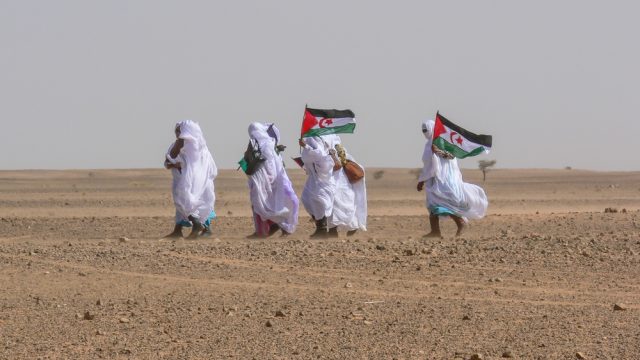
A Resolution That Redefines the Terms
On 31 October 2025, the UN Security Council approved Resolution 2797, extending the mandate of the United Nations Mission for the Referendum in Western Sahara (MINURSO) until October 2026. Eleven members supported the motion, while China, Russia, and Pakistan abstained; Algeria, consistent with past behaviour, declined to participate.
The renewal’s true importance lies not in its procedural nature but in its political direction. Drafted by the United States, the resolution reaffirmed Morocco’s Autonomy Initiative as the principal framework for future negotiations—an implicit departure from the UN’s long-standing emphasis on a referendum of self-determination.
For Morocco, this outcome represents a consolidated diplomatic victory. King Mohammed VI hailed it as “the opening of a new chapter” in consolidating Moroccan sovereignty over the territory. The decision crowns a strategic process that began five years earlier when former President Donald Trump recognised Morocco’s sovereignty in return for normalising relations with Israel. Since then, major Western capitals—from Paris and London to Berlin and Madrid—have gradually adopted the autonomy plan as the most workable path towards stability. What was once a conflict framed around independence has largely become a debate about governance within Moroccan sovereignty.
From Washington’s Lead to Europe’s Alignment
Recent statements by US Secretary of State Marco Rubio confirm that Washington views Morocco’s proposal as the only credible route to a durable solution. London soon followed, describing it as “a realistic and pragmatic foundation for peace.” This transatlantic convergence has redefined the geopolitical map of the Maghreb: Morocco now stands as the West’s principal partner in a region of rising instability, valued for its cooperation on counter-terrorism, migration management, and energy connectivity. Algeria, meanwhile, has tilted further towards Moscow, Beijing, and Tehran—adding a layer of ideological tension to an already complex rivalry.
In this shifting landscape, Spain’s stance remains uncertain. Once the colonial power and still regarded as the administrative authority under international law, Madrid has yet to articulate a coherent long-term strategy for the southern neighbourhood. Prime Minister Pedro Sánchez’s 2022 decision to endorse Rabat’s autonomy plan—communicated personally to King Mohammed VI—broke with decades of cautious neutrality. It provided short-term stability in bilateral relations, particularly over migration, but weakened Spain’s influence in the broader regional equation. The government’s muted reaction to ongoing humanitarian and human-rights issues in Western Sahara has reinforced the sense that Spanish diplomacy is driven by tactical necessity rather than strategic design.
Spain’s Next Chapter in the Maghreb
The next Spanish general elections, expected in 2027, are likely to close the Sánchez chapter. Polls suggest a parliamentary majority for the centre-right Partido Popular and Vox, opening the possibility of a new political direction. Yet whether such a government will reshape Spain’s Maghreb policy remains an open question.
The incoming administration will face a delicate inheritance: Spain’s formal endorsement of the Moroccan autonomy framework, the European Union’s growing convergence with that position, and a renewed American influence under a second Trump administration. Vox is unlikely to contest Washington’s stance, particularly while Trump remains in office. The real test will fall on the Partido Popular—whether it can define a policy that reasserts Spain’s interests while engaging constructively with both Morocco and Algeria.
Spain’s challenge is less about choosing allies than about recovering a sense of direction. Its handling of the Sahara issue has too often been reactive, lacking the clarity and consistency expected of a Mediterranean power. Yet this question touches vital dimensions of national strategy: energy routes, border management, and the credibility of Spain’s international voice. A future government has an opportunity to restore coherence to its diplomacy—balancing realism with principle and ensuring that Spain once again acts, not merely reacts, in its southern neighbourhood.
Half a century after the Green March, Western Sahara remains both a humanitarian concern and a geopolitical test. For Spain, it may also become the place where a renewed sense of purpose in foreign policy begins to take shape.



 Subscribe
Subscribe